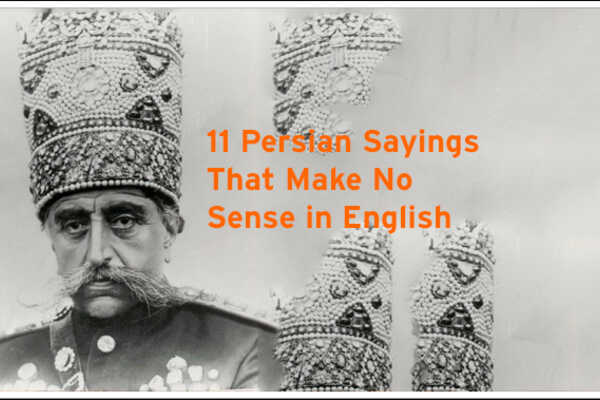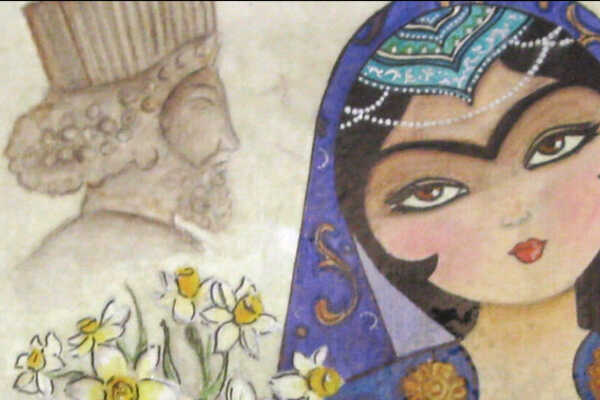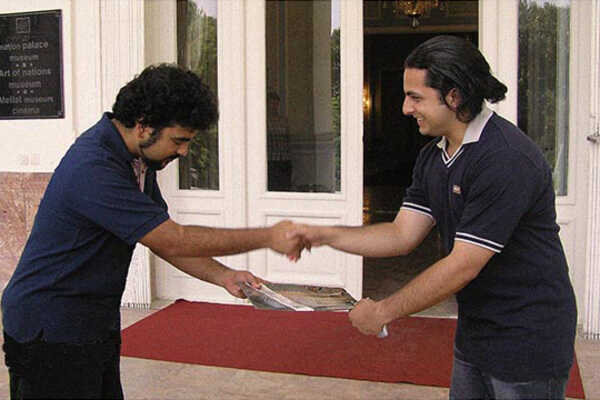
11 Persian Sayings That Make No Sense in English, part TWO
Dear friends and lovers of the Persian language,
A couple months ago, we here at Chai and Conversation quickly put together a list of Persian sayings we thought sounded quite humorous when literally translated into the English language. Every language has sayings that when taken literally in other languages, make no sense at all, and Persian certainly has its fair share of such expressions. After hastily publishing our list of the illustrated phrases, we were completely surprised to find the post take off and be shared like wild-fire. We finally had a taste of what it means to 'go viral'. Several of you wrote in the comments giving us ideas of more expressions that would be interesting to illustrate, and we couldn't resist.
So here you go, with your help, here is yet another list of common Persian expressions that make absolutely no sense when translated into English.
1. khasté nabāshee
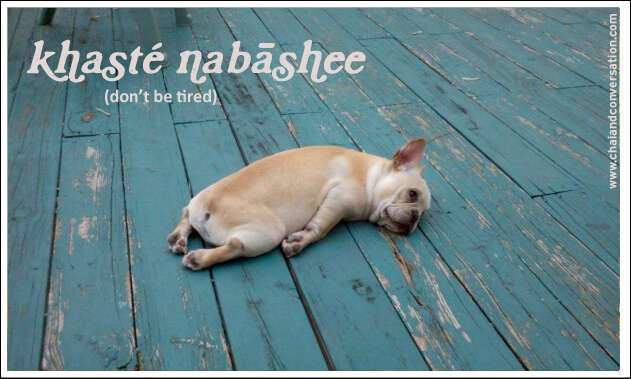
This is a very common saying in the Persian language, and literally means 'Don't be tired.' It's a nicety- you say it when you know someone's been working hard, and you want to let them know that their work is appreciated. It's a great way to begin a conversation- Salām! Khasté nabāshee! - or you can say it after someone's completed any sort of work- be it housework, work at the office, sports, etc. There's no direct way to say this in the English language, so we're happy there's an easy and concise way to say it in Persian.
2. khar too kharé
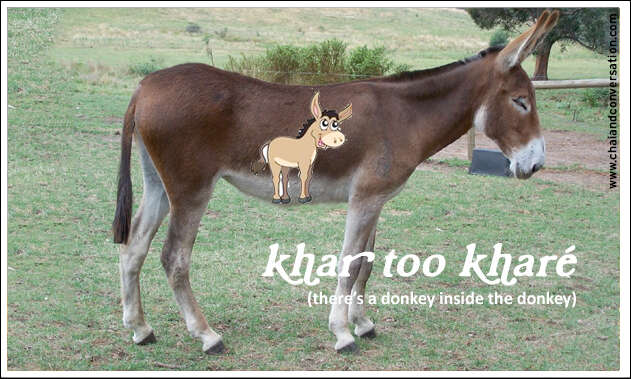
While khar too kharé literally means there's a donkey inside a donkey, it's a phrase that signifies chaos or disorganization. So, if you show up at a meeting, and everyone's late, no one knows the agenda, and everything is in disarray, you can simply say khar too kharé! And everyone will know what you mean.
3. saramō bordee
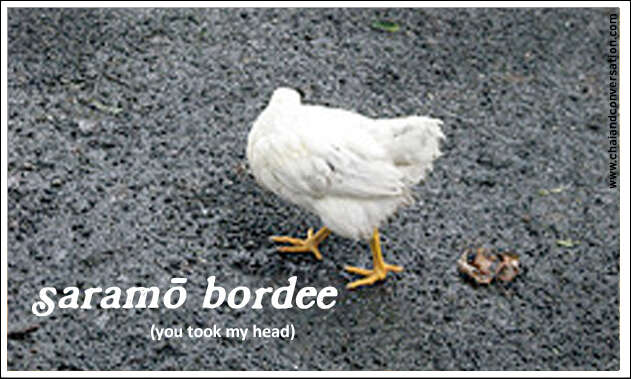
Saramoō bordee literally means you took away my head, but this phrase goes to signify 'you talked my head off'.
4. na bābā

This is very commonly heard in the Persian language- when someone asks a question, and you emphatically want to say that the answer is no, you say 'Na bābā!'. This literally means 'No father!', but it's just a way of emphasizing that the answer is indeed NO.
5. pedar sag

This is a not so nice term you can call someone as an insult. If you say someone is a pedar sag, you're literally telling them their father is a dog, and you are giving them a message that you think they are a jerk.
6. shākh darāvordam

Shāk dar āvordam is a Persian saying that literally means 'I grew horns!'- similar expressions are heard in many other languages. In Italian, for instance, this would mean that your wife cheated on you. In Persian, however, it simply means 'I was incredibly surprised!' or 'I couldn't believe it!'
7. chashm
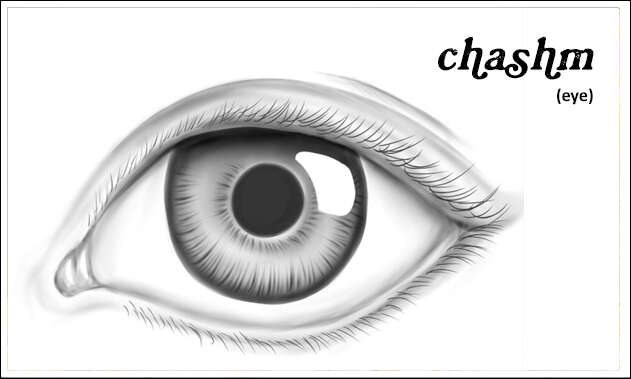
This is a very common way of saying 'yes', even though literally chashm simply means eye.
8. damet garm

Damet garm is commonly heard in the Persian langauge, and literally means 'may your breath be warm.' This phrase is used especially after someone's said something particularly thoughtful and clever, and you tell them damet garm, may your breath be warm, or in other words, 'may you live for a long time!'
9. deltangam
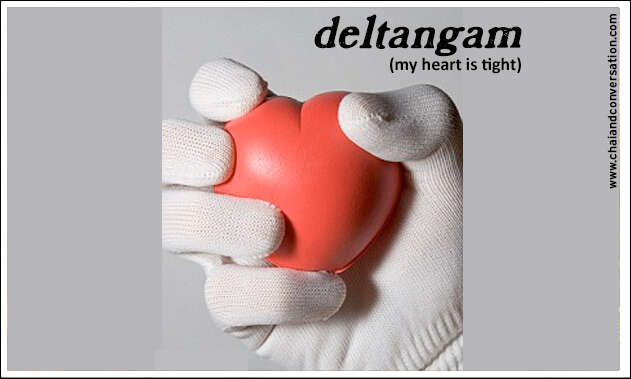
This is a rather poetic expression which literally means 'My heart is tight'- the true meaning of deltangam, however, is 'I am longing'. So this phrase is used when you are feeling quite nostalgic or when you miss something or someone. So you can be deltang for your former lover, or for the country that you grew up in but haven't seen in a long, long time.
10. doret begardam

Doret begardam is a sweet phrase that means 'let me do circles around you', and is used to mean something along the lines of 'I love you so much, I admire you, and I would do anything for you.' It is especially used when parents are talking to children.
11. dozāreet oftād
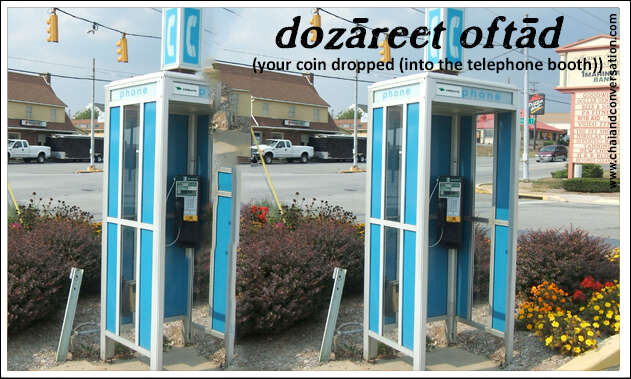
This expression requires a bit of a longer explanation. A dozaree is a coin that was used to make telephone calls in public telephone booths in Iran before cell phones took over, making said booths completely obsolte. However, in Iranian telephone booths, often times after the coin was dropped in, it wouldn't 'take', and it would come straight out. So people wishing to make a phone call would have to try dropping the coin in over and over again until it would finally be recognized by the phone, and they could make their call. So, over time, dozāreet oftād came to be a metaphor for someone finally 'getting' something. So, for example, if someone says a joke and the person they are talking to takes a while to 'get' it, after they finally understand the punchline, the jokester can say 'FINALLY, dozāreet oftād', meaning FINALLY you got the joke!'
So there you go, 11 MORE Persian phrases that when translated into English literally, are quite hilarious. Can you think of any that we're missing? Leave them for us in the comment section below- perhaps we can do yet another illustrated series for all to see.
Want to Learn More Persian, for Free?
Learn Persian with Chai and Conversation is a free podcast devoted to teaching conversational Persian! In addition, we have a series of guides for each lesson that will help you get a better understanding of the language. Try out these Bonus Materials for Lesson 1 (a PDF guide and enhanced podcast) for free, and find out when new lessons are released by signing up here!
